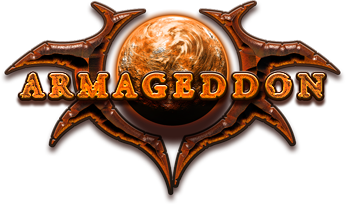Advanced Roleplaying
Avoid Metaplay
One of the cardinal rules in advanced roleplaying is to avoid metaplay. This means not using out-of-character (OOC) knowledge to influence your character's actions. Your character should only act on information they have personally acquired in-game. For instance, if you know about a secret hiding place from a previous character or from OOC conversations, your current character should not be aware of it unless they have discovered it through their own experiences. Adhering to this rule maintains the integrity and fairness of the game, ensuring that all players are on an equal footing.
Embrace Character-Driven Decisions
Advanced roleplaying involves making choices that your character would make, even if those choices are not the most advantageous. This might mean taking risks, facing dangers, or making sacrifices. For example, a character with a strong moral code might refuse a lucrative but unethical job, even if it means struggling financially. Similarly, a character driven by revenge might pursue a dangerous enemy, despite the high risk of harm. As you make choices your character would make, other players will be doing the same. Naturally, characters may disagree or even come into conflict when their decisions do not mesh. An advanced roleplayer fully embraces this possibility, and rolls with any punches their character may take in doing so.
Emotional Authenticity
Explore and portray your complex emotions genuinely. Characters should react to their surroundings and experiences with appropriate emotional responses. If your character experiences a traumatic event, consider how this impacts their behavior over time. Do they develop new fears or motivations? Practice separating your own emotional responses from that of your character. Use the FEEL and THINK commands to express these emotional states and use EMOTEs to outwardly show how they react.
Subtext
Not everything your character thinks or feels needs to be explicitly stated. Use subtext and implication to convey deeper meanings through actions, body language, and tone. For instance, a character might agree to a plan with a tight-lipped smile, indicating reluctance or skepticism without outright stating it. This subtlety can create richer interactions and give other players more to interpret and respond to.
Interaction
Roleplaying is a collaborative effort. Advanced roleplayers look for ways to involve others in their storylines. This could involve sharing secrets, forming alliances, or creating shared goals. Encourage other players to contribute to your development and be open to letting their actions influence your story.
Immersion
Use descriptive language to paint vivid pictures of your actions and surroundings. Avoid breaking character, even in challenging situations, to preserve the immersive atmosphere. If you need to communicate OOC, do so discreetly and minimally.
Engaging with the Environment
Not to be confused with power emoting, you can use your characters actions and emotes to bring to life the world around you for yourself and other players. Does your character stop at an intersection to let a wagon rumble by? Do they weave through the thick crowds of the bazaar eyeing the wares? Do they pause to look skyward, whispering to the light of Lirathu or step on a cockroach as it skitters past their feet? These little details can help to bring the world to life for yourself and the players around you. Reading room descriptions, as well as the output of commands such sniff can help you find environmental details to react to as well.
